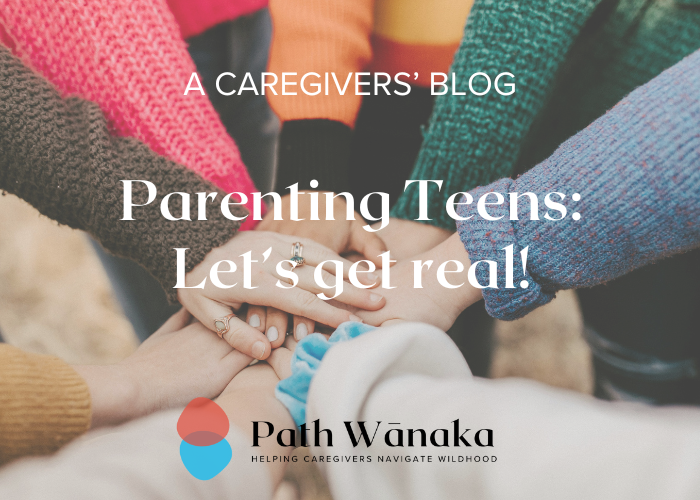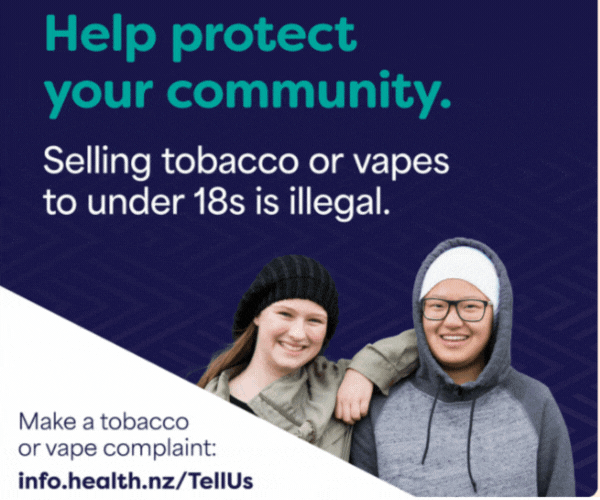Why It's Important to Talk to Your Teen About Vaping (Caregivers' blog)
Jamie Seymour, Health New Zealand | Te Whatu Ora
27 May 2025, 9:03 PM

Many teens think vaping is just flavoured steam, but vaping isn’t harmless. Most vapes contain nicotine, which is addictive and can mess with a teenager’s mood and focus. Many teens don’t realise they’re getting addicted until they try to stop and can’t. While we don’t know the long-term effects of vaping, it is not harmless and is not for young people and people who do not smoke.
If parents don’t talk to their kids about vaping, someone else will—like peers, social media influencers, or the vape industry. That’s why it’s so important that they hear the facts from you. Even if it seems like they’re not listening, your influence matters more than you think.
Starting the conversation early can help them avoid addiction, make smarter choices, and know they can come to you if they’re struggling.
Find time to talk
Choose the right moment to talk with your teen. Talk when you're both calm and without distractions – like during a walk or car ride.
Treat vaping situations (such as vape shops or other people vaping) as learning opportunities to ask them what they know, what they think, and how they feel.
Be informed
Know the facts about vaping and its risks. Your teen is more likely to listen if you speak confidently and accurately. Don’t be afraid to let them know when you don’t have the answers.
Stay calm and non-judgmental
If your teen is already vaping, avoid reacting with anger. Instead, express your concern and desire to support them.
Listen more than you talk
Listen to them with patience. Ask open-ended questions like “What do you know about vaping?” or “Why do you think others at your school vape?” Let them share their experiences.
Set clear expectations
Make your values clear—explain that you don’t support vaping and why. Let them know you’re there to help them make safe choices.
Offer support
If they’re vaping and want to quit, help them find support. This could include talking to a GP or calling Quitline.
Key Messages
Vaping is not for people who don't smoke, especially children and young people.
Vaping can help some people quit smoking.
For people who smoke, vaping is less harmful, but not harmless. Explain that most vapes contain nicotine, a highly addictive substance. It can be very hard to stop vaping once you’ve become addicted to nicotine.
Vaping can have side effects. It can make you cough, give you a dry and irritated mouth and throat, and cause headaches and nausea.
Be a good role model. If you smoke or vape, talk to your child about your experiences and how hard it is to quit. Consider getting your own support to stop.
Key takeaways:
- Vaping is not harmless and can be addictive. Breathing any product into your lungs unnecessarily can cause you harm.
- Vaping may cause side effects. It can make you cough, give you a dry and irritated mouth and throat, and cause headaches and nausea.
- Staying smokefree and vapefree is best for your health. Vaping is only recommended for people who want to quit smoking.
Key resources for parents and rangatahi:
- Quitline – Are you or a loved one trying to quit vaping? If you need free support or advice free call Quitline on 0800 778 778.
- Vaping Facts | Ministry of Health – See the Vaping Facts website by the Ministry of Health for more information on vaping and vaping laws in Aotearoa.
- Protect Your Breath – This social marketing campaign was created by youth together with health experts. The campaign encourages young people to think critically about their choices when it comes to breath and vaping.
- KidsHealth – Paediatric Society of New Zealand | Te Kāhui Mātai Arotamariki o Aotearoa
- Nicotine (vaping and smoking) - NZ Drug Foundation This short video by The New Zealand Drug foundation is for New Zealand parents, caregivers, whānau and those working with young people to understand basic facts about nicotine.
- New Zealand Drug Foundation – Conversation Planner is a useful guide for how to have supportive conversations with your child about substance use.
- The Lowdown – The Lowdown is a space created with rangatahi, for rangatahi – providing support with hauora, identity, culture and mental health.
- Protect our Community: Make a smoking or vaping complaint
Contact us: [email protected]



